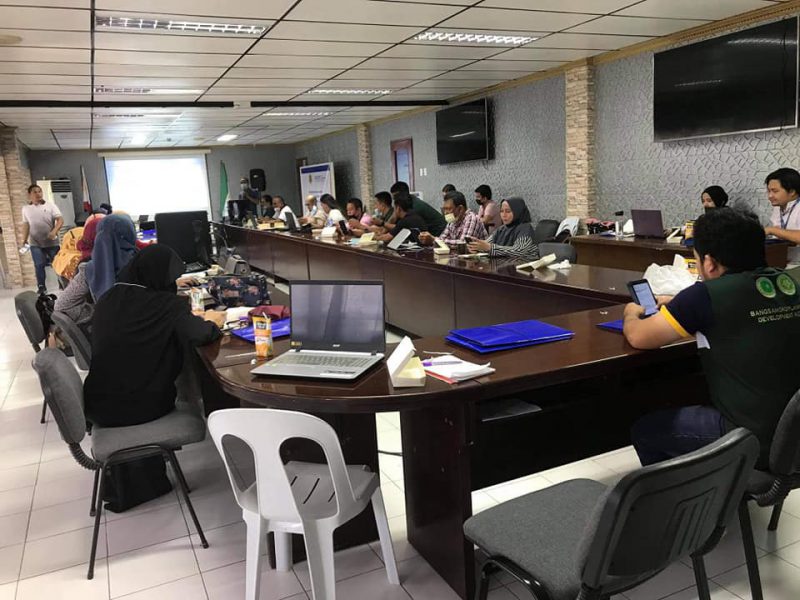COTABATO CITY — Thirty (30) employees from the twelve (12) divisions of the Bangsamoro Planning and Development Authority (BPDA) underwent a three-day “Orientation on Basic Monitoring, Evaluation, Accountability and Learning (MEAL) Training Workshop” facilitated by the International Organization for Migration (IOM) on January 26-28, 2021, held at Golden Lace Resto, Mother Brgy. Rosary Heights, this city.
Nomaire P. Mustapha, Chief of BPDA’s Monitoring and Evaluation Division, said this training aims to capacitate the BPDA employees with the technical knowledge on how to handle monitoring and evaluation in different projects of the BARMM.
“We want to strengthen our services with the different BARMM ministries, agencies, and offices in providing technical assistance during the monitoring and evaluation of their projects,” Mustapha stressed.
The first two days of the training covered the topics on project cycle management, basic understanding on MEAL including monitoring tools, systems, skills and core competencies; conflict sensitive; result matrix; database management system and the KoBo Toolbox.
Dan Fortades, IOM Focal Person for Monitoring and Evaluation, suggested to have a focal person in every division to be trained on how to use the “KoBo Toolbox,” a free open-source tool for mobile data collection, available to all which allows you to collect data in the field using mobile devices such as mobile phones or tablets, as well as with paper or computers.
Fortades also provided some tips on how to effectively conduct an interview including the preparation of forms, attention to detail, and establishing a rapport with the interviewee.
“It is something important to empathized with our interviewee but there should be a fine line between the interviewer and interviewee,” Fortades emphasized during the workshop.
Furthermore, Fortades recommended some innovations in preparing a comprehensive project monitoring report by using a correct reporting template and a narrative report that is a results-based reporting that ensures accuracy, facts, and consistency of information.
IOM’s Chona Chavez, shared tips that can be followed to develop a basic file management system which includes to set up a shared data management system with authorized access; together with the project team, establish naming conventions for both folders and files; and maintain the files regularly.
Abdulrahman A. Kara, Information Technology Officer I of BPDA’s Information and Knowledge Management Division, discussed the introduction and appreciation to geo-tagging and its concept, data gathering tools, appreciation to Geographic Information System (GIS), and introduction to Regional Project Monitoring and Evaluation System (RPMES) database during the last day of the activity.
Kara led the participants in a field workshop to personally execute and experience the geo-tagging of projects.
“We aim to mitigate the fraud in implementing programs and projects by using innovative tools like free open-source software which can trace the location and existence of projects,” Kara stressed. Meanwhile, Engr. Mohajirin T. Ali expressed his gratitude to the IOM for their invaluable support in capacitating the BPDA employees to effectively execute its duties and functions in the monitoring and evaluation of BARMM’s programs and projects. (BPDA-BARMM)




